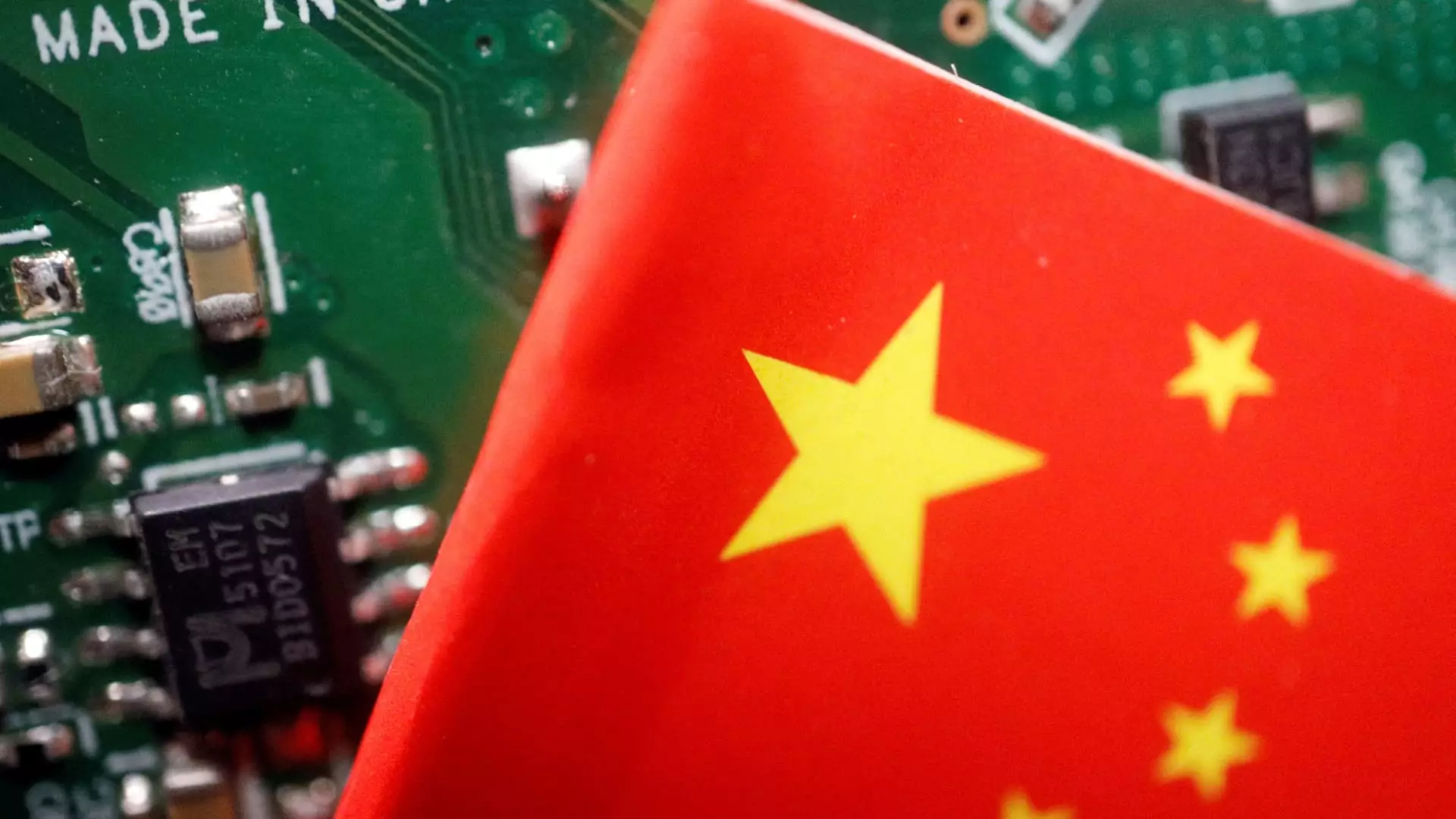In a striking display of market resilience, major Asian chip stocks outside of China experienced a surge on Tuesday. This came in the wake of the Biden administration’s announcement of a new set of semiconductor export restrictions aimed at crippling China’s ability to manufacture high-end microchips. The Taiwanese semiconductor giant, Taiwan Semiconductor Manufacturing Company (TSMC), witnessed a commendable increase in its stock price, climbing 2.4%. Meanwhile, Japanese chip-related firms also enjoyed upward momentum, with notable gains from Tokyo Electron, Lasertec, Advantest, and Renesas Electronics, all of which reported substantial rises of 4.7%, 6.7%, 3.9%, and 2.2%, respectively.
This unexpected market behavior highlights a complex dynamic in the semiconductor industry. Investors appear to be confident that the ramifications of U.S. restrictions may not immediately destabilize the broader market. Instead, it rolls out an opportunity for other players to capture any lost market share that might occur as a result of the action against Chinese firms.
The newly introduced American export curbs also have significant implications for South Korean technology stalwarts SK Hynix and Samsung Electronics. These firms are now faced with constraints on high-bandwidth memory chip sales, which are crucial components in various electronic devices. Despite these restrictions, both companies saw their stock prices increase—by 0.9% and 1.8% respectively. This paradox suggests a market belief that the impact of U.S. regulations may be manageable for these companies, as articulated by Derrick Irwin, a portfolio manager at Allspring Global Investments. In a discussion featured on CNBC’s “Street Signs Asia,” Irwin noted that while the regulations would likely have some effect, particularly on high bandwidth memory chip sales to China, he expressed optimism regarding the companies’ ability to redirect their sales towards markets that present lower risks.
As U.S. export restrictions tighten their grip, the Chinese semiconductor landscape faces new challenges. The latest controls involve prohibiting sales to 140 companies, significantly impacting key players like Naura Technology Group and ACM Research, whose shares fell by 3% and 1%, respectively, on the Chinese market. Interestingly, while some companies faced declines, Piotech managed a modest increase of 1%. This variability underscores the volatility within the sector as companies grapple with fluctuating investor confidence.
The largest Chinese chipmaker, Semiconductor Manufacturing International Corporation (SMIC), also fell 1.5% in Hong Kong trading, reflecting broader concerns about the future of Chinese semiconductor capabilities. The measures implemented by the U.S. government illustrate a strategic attempt to stifle China’s technological advancements, particularly in sectors deemed critical to national security. The sentiment among investors suggests skepticism regarding the Chinese firms’ abilities to flourish amid growing restrictions, alongside the reality that reliance on U.S. technology poses a significant barrier.
According to U.S. Secretary of Commerce Gina Raimondo, these newly instituted export controls represent the culmination of efforts to hinder China’s self-sufficiency in producing advanced technologies. The targeted approach aims not just at isolating Chinese firms but also involves an array of manufacturing equipment and software tools essential for semiconductor development. The updates also include a “red flag guidance” to strengthen compliance measures, aiming to enhance the overall effectiveness of existing regulations.
Yet, the efficacy of these efforts remains questionable. Last month, concerns were raised when a chip manufactured by TSMC was reportedly discovered in a Huawei product—casting doubt on the robustness of compliance mechanisms currently in place. As the geopolitical stakes continue to heighten, the semiconductor industry embodies a microcosm of broader tensions between the U.S. and China.
In this intricate and ever-evolving landscape, the resilience of Asian chip stocks illustrates a complex interplay of opportunity, risk, and strategic maneuvering. As U.S. regulations seek to navigate national security concerns, the adeptness of companies to adapt and redirect their business strategies amidst uncertainty will play a crucial role in shaping the future of the global semiconductor industry. Investors and stakeholders alike will need to remain vigilant as they analyze market Trends shaped by regulatory decisions, competitive dynamics, and geopolitical shifts. In the rapidly changing world of technology, the capacity to innovate and pivot could well determine the winners and losers of this high-stakes game.


Leave a Reply